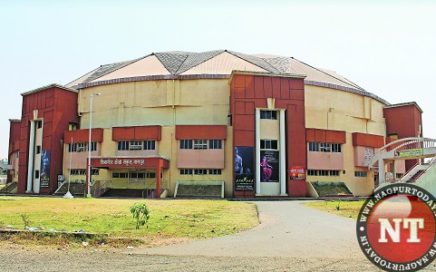
Nagpur: A public interest litigation (PIL) has been filed in the High Court by the Vidarbha Electricity Consumers’ Forum, seeking a ban on the forced installation of smart prepaid electricity meters across Maharashtra and demanding that the process be declared illegal. Before issuing notices to the respondents, the High Court had directed the petitioner to submit all relevant documents and legal provisions explaining why smart prepaid meters should not be implemented.
During the hearing on Wednesday, the petitioner submitted a comprehensive set of documents, regulatory provisions, and supporting materials before the High Court. Following this submission, the court issued notices to the Secretary of the Union Ministry of Power, Power Finance Corporation, Secretary of the State Energy Department, and MSEDCL (Maharashtra State Electricity Distribution Company Limited), directing them to file their responses. Advocate Pankaj Navalani represented the Union Ministry of Power in court.
Govt. Letters and Central Scheme Highlighted in Metering Plan
In a previous order, the court had acknowledged that the petition pertains to the replacement of existing electricity meters. It was noted that the Chief Engineer of the Materials Management Department had issued a letter to the Chief Engineer of the Operations and Maintenance Department referencing guidelines from the Union Ministry of Power and the approval of the RDSS (Revamped Distribution Sector Scheme) by the Power Finance Corporation.
As part of this scheme, MSEDCL invited tenders to appoint an Advanced Metering Infrastructure (AMI) service provider for smart prepaid metering across Maharashtra.
Court Observes Lack of Official Documents in Original Petition
The court observed that to assess the legality of the issues raised, neither the central scheme nor the relevant government directives had initially been placed on record. It appeared that the implementation of smart meters was a result of high-level policy decisions and discussions.
During the previous hearing, Advocate General Deven Chauhan, representing the state government, argued that the smart metering initiative was being carried out under the Smart Grid Mission guidelines, which were issued on January 18, 2015. He also cited provisions under the Meter Installation and Operation (Amendment Regulations) – 2019, particularly Section 3, to justify the process.
Due to the absence of these documents in the original PIL, the court had granted the petitioner two weeks to furnish them— a directive that has now been complied with.














